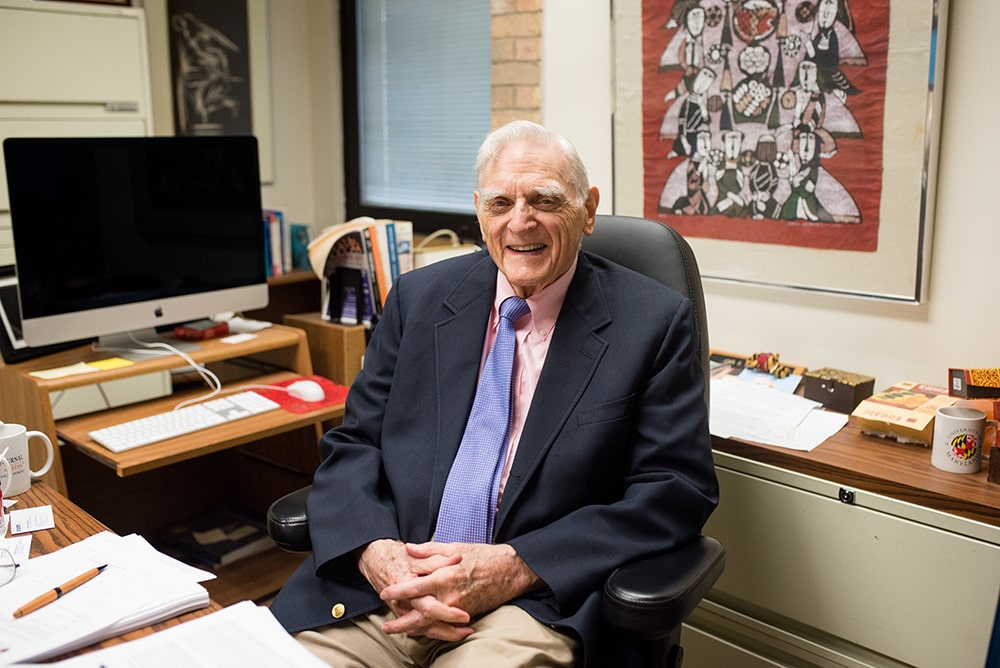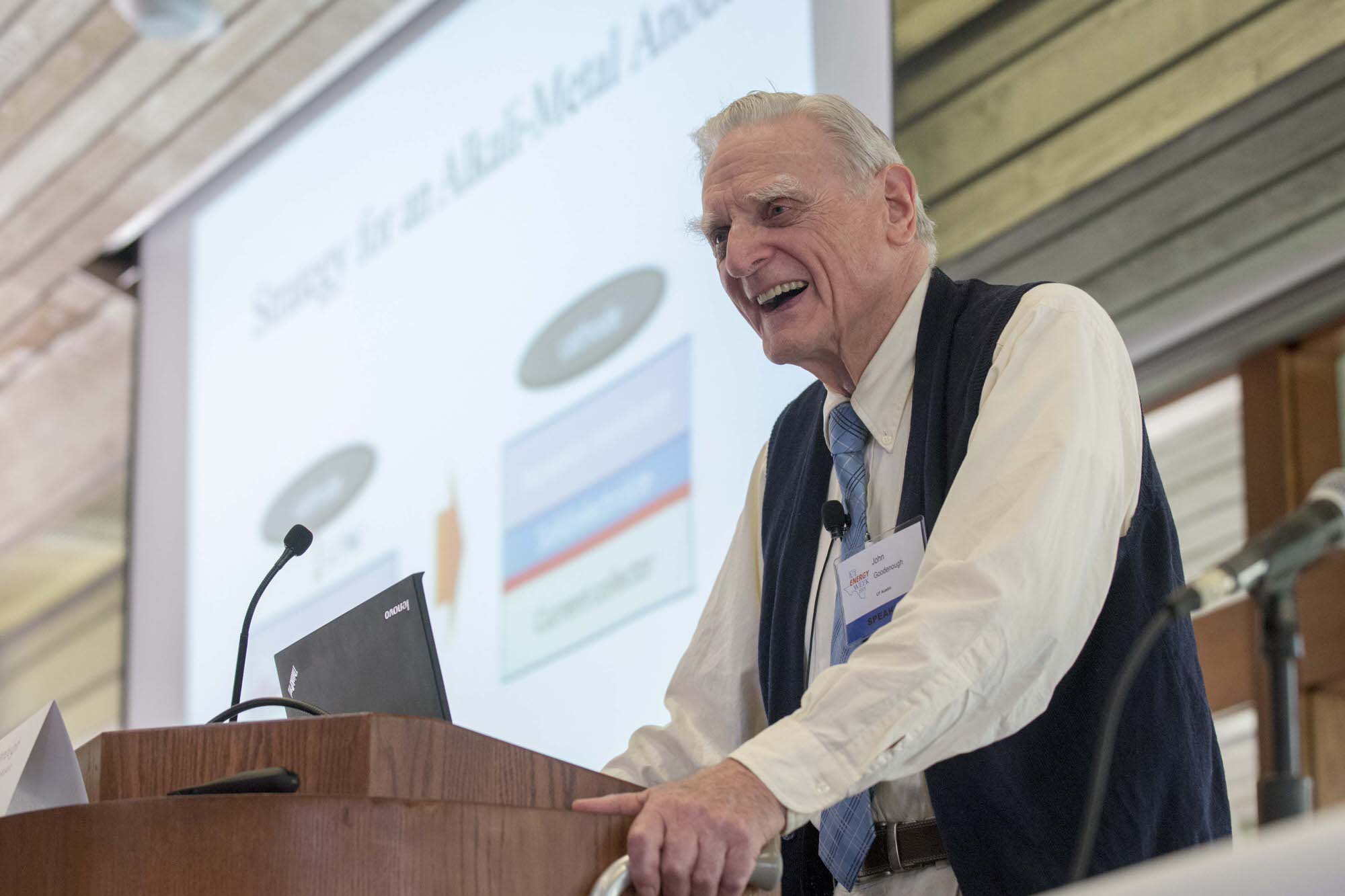
John B. Goodenough 1922-2023
UT Mourns Battery Pioneer
John B. Goodenough, professor at The University of Texas at Austin who is known around the world for the development of the lithium-ion battery, died Sunday, June 25 at the age of 100. Goodenough was a dedicated public servant, a sought-after mentor and a brilliant yet humble inventor.
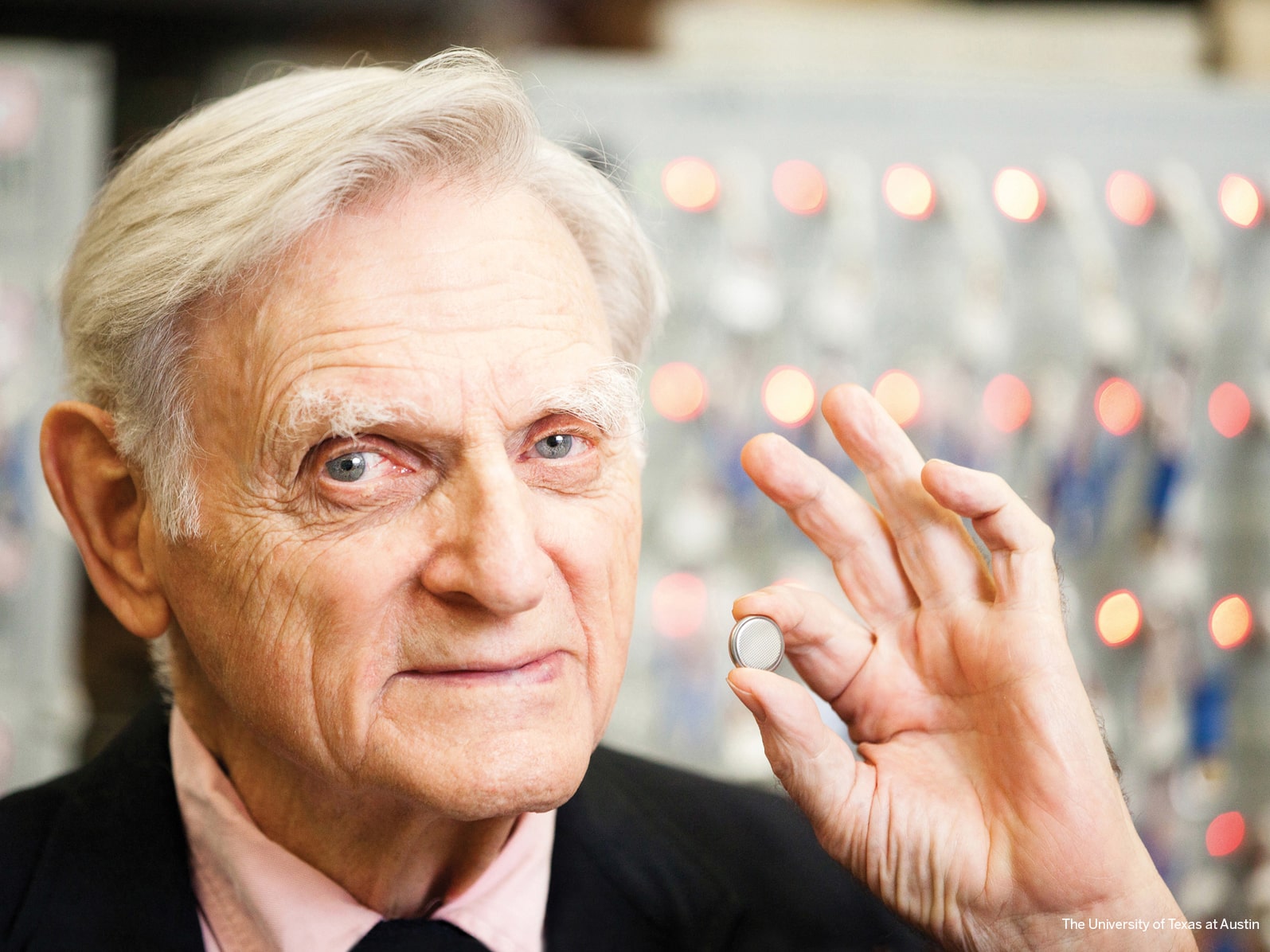
His discovery led to the wireless revolution and put electronic devices in the hands of people worldwide. In 2019, Goodenough made national and international headlines after being awarded the Nobel Prize in chemistry for his battery work, an award many of his fans considered a long time coming, especially as he became the oldest person to receive a Nobel Prize.
“John’s legacy as a brilliant scientist is immeasurable — his discoveries improved the lives of billions of people around the world. He was a leader at the cutting edge of scientific research throughout the many decades of his career, and he never ceased searching for innovative energy-storage solutions. John’s work and commitment to our mission are the ultimate reflection of our aspiration as Longhorns — that what starts here changes the world — and he will be greatly missed among our UT community.”
Jay HartzellUT Austin President
Winner of the 2019 Nobel Prize in Chemistry
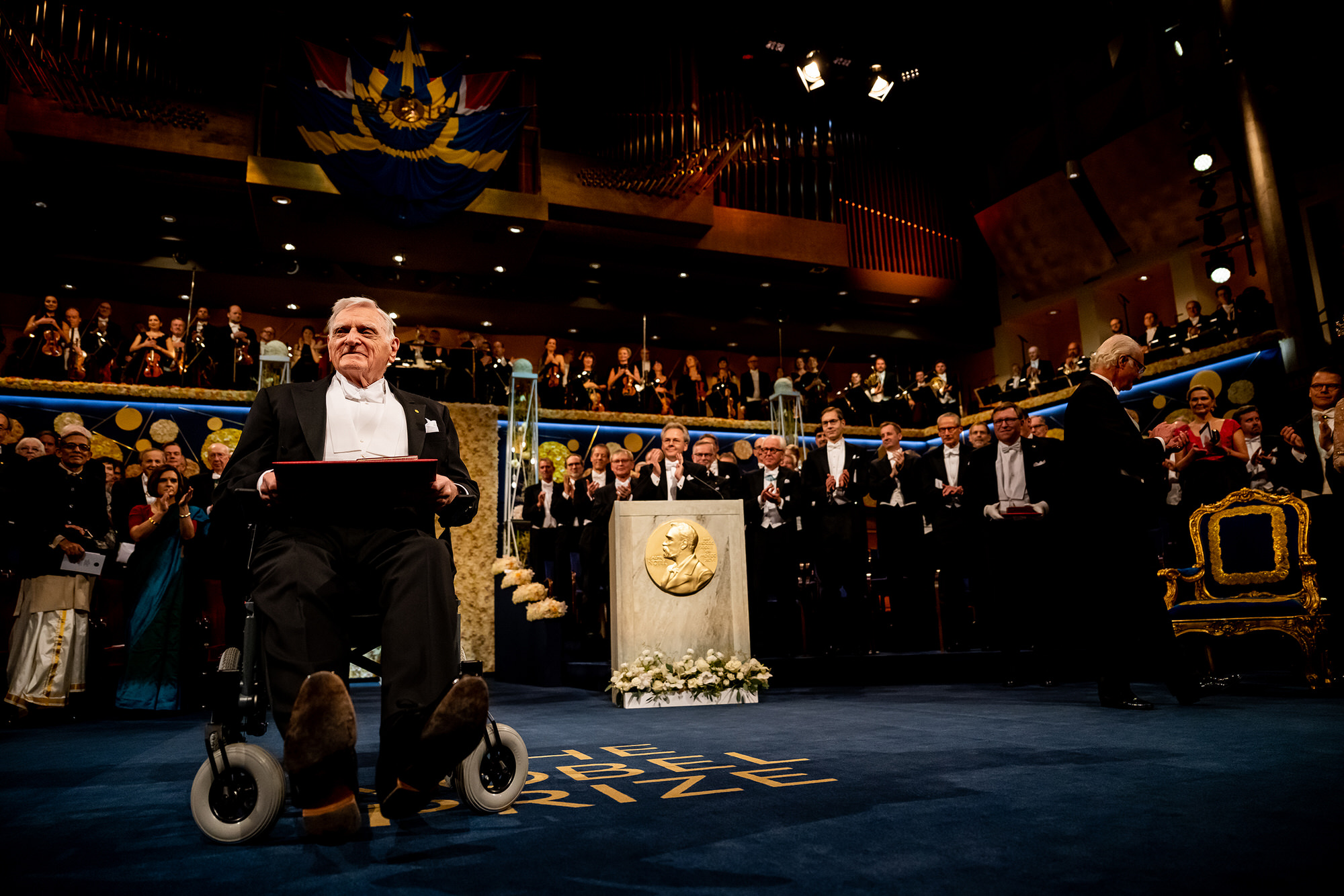
John Goodenough, center stage at the 2019 Nobel Prize awards.
John B. Goodenough, who holds the Virginia H. Cockrell Centennial Chair of Engineering in the Cockrell School of Engineering, has been awarded the 2019 Nobel Prize in Chemistry — jointly with Stanley Whittingham of the State University of New York at Binghamton and Akira Yoshino of Meijo University — “for the development of lithium-ion batteries.”
In the words of the Nobel Foundation, “Through their work, they have created the right conditions for a wireless and fossil fuel-free society, and so brought the greatest benefit to humankind.”
100th Birthday Symposium
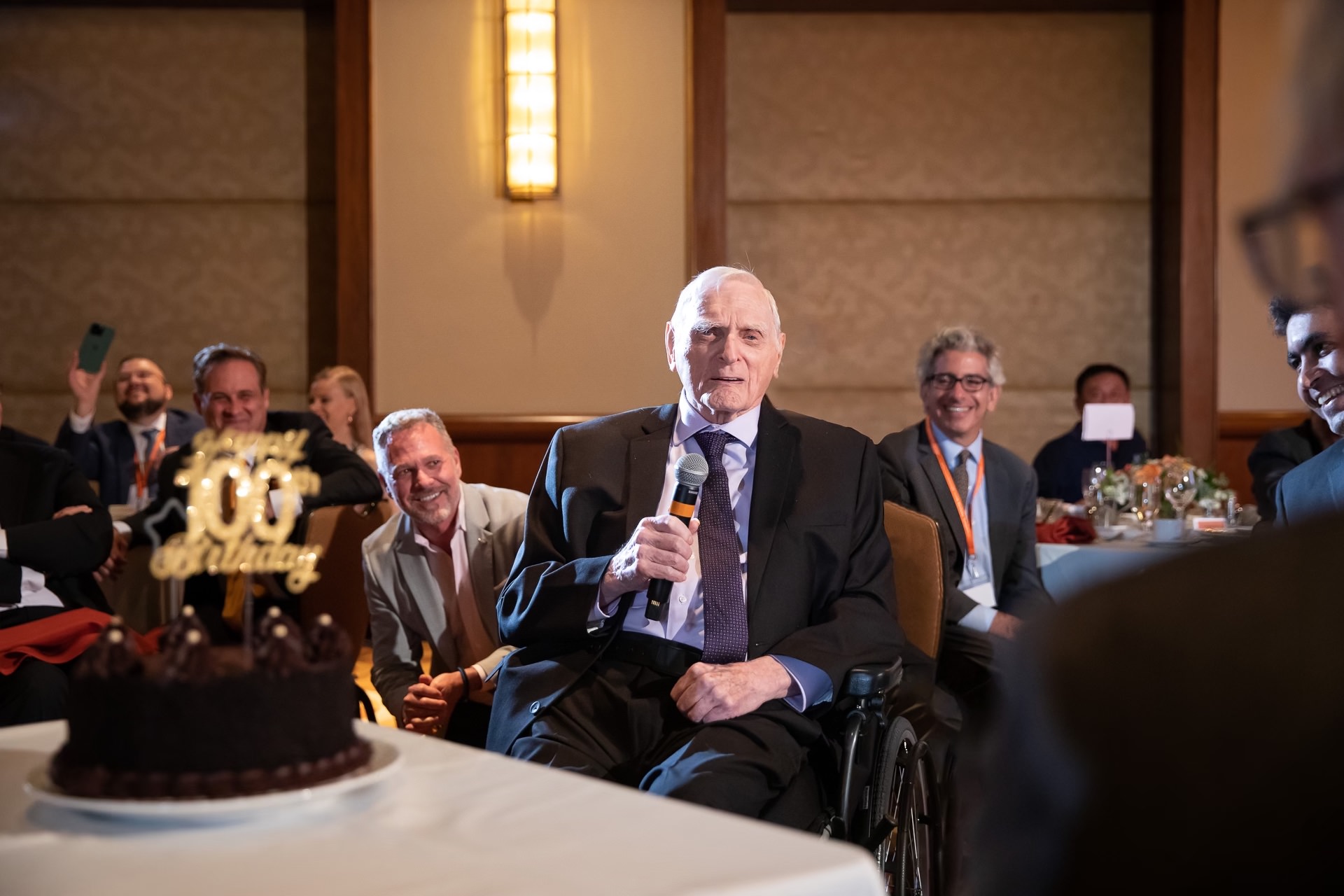
To celebrate John Goodenough turning 100 on July 25, 2022, battery leaders from around the globe, many of whom have been influenced by Goodenough’s breakthroughs, gathered virtually and in person at a symposium at the Cockrell School of Engineering at The University of Texas at Austin to share stories and discuss the next generation of battery research.
“He is a symbol of ingenuity, strength and excellence in the Cockrell School,” said Sharon Wood, executive vice president and provost at UT Austin and former dean of the Cockrell School, at the event. “His mere presence inspires students and encourages our faculty to succeed. He has unequivocally and quite literally changed the world with his inventions. And he has the biggest laugh on campus, so you always know when you are in John’s presence.”
John Goodenough – Changing the World
See how a visionary investment in The University of Texas at Austin brought John B. Goodenough to UT, where his work continues.
To celebrate John Goodenough turning 100 on July 25, 2022, battery leaders from around the globe, many of whom have been influenced by Goodenough’s breakthroughs, gathered virtually and in person at a symposium at the Cockrell School of Engineering at The University of Texas at Austin to share stories and discuss the next generation of battery research.
“He is a symbol of ingenuity, strength and excellence in the Cockrell School,” said Sharon Wood, executive vice president and provost at UT Austin and former dean of the Cockrell School, at the event. “His mere presence inspires students and encourages our faculty to succeed. He has unequivocally and quite literally changed the world with his inventions. And he has the biggest laugh on campus, so you always know when you are in John’s presence.”
10 Fast Facts About John Goodenough
The Inventor
UT engineer John Goodenough changed our lives with his pioneering battery research and his work will live on for generations.
